Our Messy, Wonderful Journey to Self-Sufficiency in the Jungle
SoulFire Farm
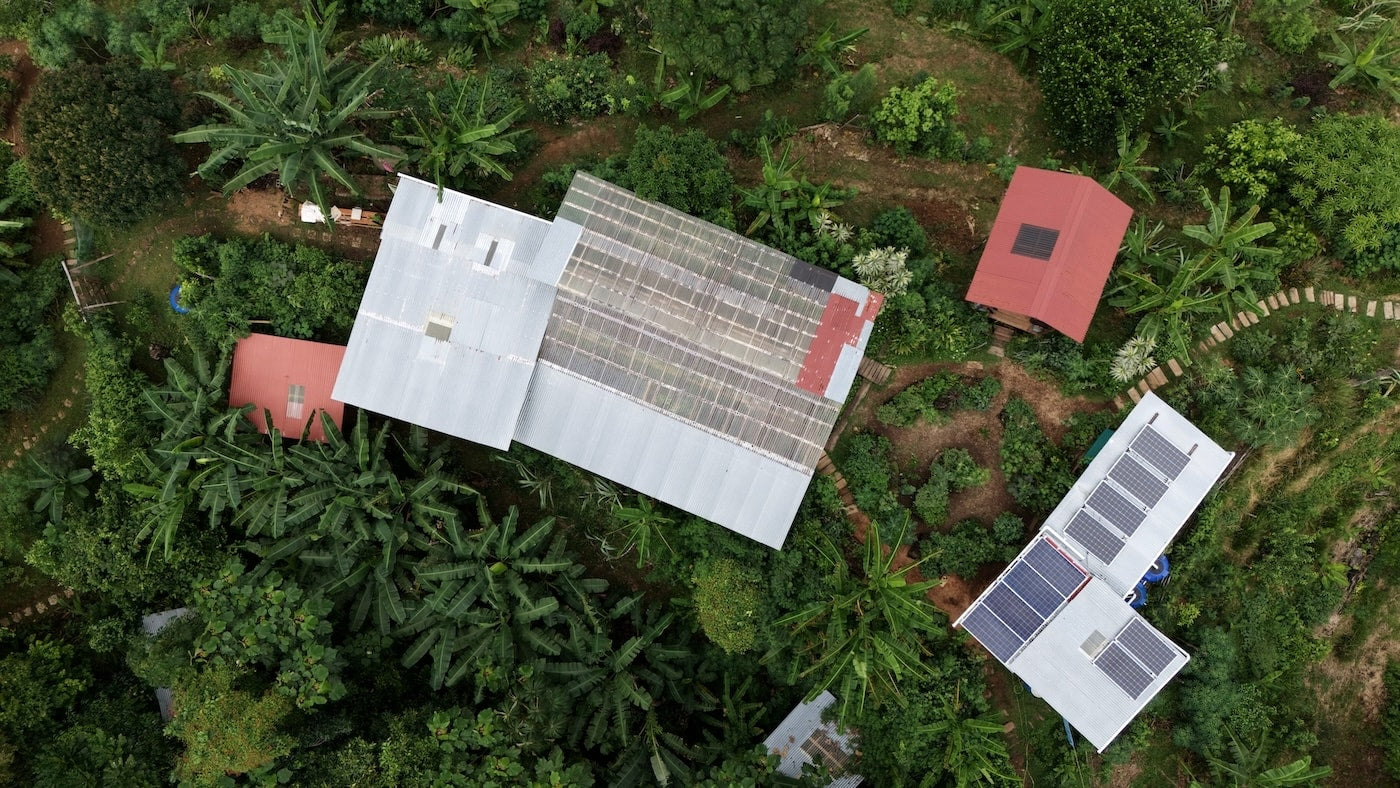
Our Messy, Wonderful Journey to Self-Sufficiency in the Jungle
SoulFire Farm
It sounds idyllic, right? Maybe a little romanticized? Well, let me tell you, we had that dream too. Back in 2018, our family of four packed up our lives and permanently moved to this piece of raw jungle we call our home today. Our goal? Turning this place into a thriving self-sufficient homestead.
Now, let’s be honest. Is 100% self-sufficiency even realistic for a small family on a small farm? Probably not. But through this journey we've discovered that being "self-sufficient enough" is all we needed. It’s a journey that transformed our patch of jungle into Soulfire Farm, a place that now supplies most of our groceries, feeds the friends and volunteers who occasionally share our table, and honestly, gives us an invaluable sense of security.
But wanting it and doing it are two different things. It meant learning many new skills and adapting to a completely new way of living, especially since we weren't exactly tropical farming experts when we started!
When we moved to our land there was no electricity, no running water and no structures, just jungle. We also had a very tight budget so for the first 1-2 years our kitchen was a tent, our shower a garden hose outdoors and our bathroom was an outhouse with a composting toilet.
We knew we couldn't afford to build a fancy house and plant a massive food forest right away. So, we started small, learned as we went, and built almost everything ourselves – sometimes with a helping hand from awesome friends and volunteers who came through the farm. Lots of recycled materials, lots of wood harvested right here.
Slowly, piece by piece, things took shape. We rigged up a DIY solar power system. We figured out rainwater catchment because, well, water is life. We built a simple greenhouse to give our more delicate plants a fighting chance against the torrential downpours we get here. We even set up an aquaponics system – basically, fish (koi and tilapia) help fertilize the water for growing amazing greens and herbs. It sounds fancy, but it was another DIY adventure!
We also killed… a lot of plants. Seriously. Tropical farming has a steep learning curve! What thrives in one place wilts in another. What the books say should work just… doesn’t. It took time, trial, and error (so much error!) to figure out what actually likes growing here.
Today? It’s a different picture. We’ve got a wild mix of fruits, veggies, herbs, and leafy greens growing. Chickens, ducks, and geese wander around, giving us eggs and occasionally meat. For a while, we even had enough surplus greens, eggs, and homemade bread to supply other local families – proof that even a small-scale setup can make a real difference. Now, our farm reliably feeds us and the volunteers and friends who stay with us occasionally.
Although we are only a handful of years into this self-sufficiency journey our resiliency was tested several times.
We've navigated the pandemic out here with no problems, and on two separate occasions, worker strikes completely shut down our islands from receiving any supplies, gasoline was scarce, cooking gas was impossible to find, and store shelves were almost empty. This went on for several weeks on the first protest, and almost 2 months on the second protest.
We cooked with fire, to save cooking gas for rainy days, our meals were made from what could harvest from the farm. We actually enjoyed cooking with fire, we ate great meals and even made banana bread on a dutch oven over the coals!
We had enough supplies to feed our family, several volunteers and many customers who were buying our produce every week during these difficult times.
Okay, so you want the nuts and bolts? Here’s what became essential for us:
Water, Water, Everywhere: You can't grow food, raise animals, or even live comfortably without a reliable water source. Here in Bocas, rain is abundant... most of the time. We set up an in-ground rainwater catchment system, channeling water from several slopes into storage ponds. We have about 50,000 ft2 of rain catching area and about 50,000 liters of water stored in ponds and tanks.
It sounds like a lot, but you become very mindful of usage, especially during the drier spells. Every drop counts! We use it for drinking (filtered, of course), cooking, washing, and watering the gardens. Droughts happen, even in the rainforest, so having that buffer is crucial and we're glad we do as we had some the worst droughts on record during the past few years; our reservoir got pretty low at times but we never ran out of water. If you want to learn more about our water system click here.
Keeping the Lights On: Modern life needs power. We pieced together a solar power system by ourselves using a repurposed battery from a salvaged Tesla vehicle. It’s wasn’t a huge system but enough to run lights, charge devices, run the water pump, and power essential kitchen gadgets and power tools. It’s taught us energy discipline. We since upgraded to a slightly larger solar system but we still plan energy-intensive tasks like laundry or using tools for sunny days and conserve energy whenever possible. If you want to learn more about our solar system click here.
Becoming Food Independent (The Tasty Part!): This is the core, right? It means diverse planting. Not just one type of banana, but several varieties that fruit at different times. Perennial greens that produce year-round. Root crops that store well in the ground. Animal systems that provide protein and fertility (hello, chicken manure!). Aquaponics for those fussier greens. It’s about creating layers of food production.
Making Our Own Magic (On-Site Inputs): Healthy soil is everything. You need fertility, good biology, and ways to handle pests naturally. Buying fertilizers, pesticides, and soil amendments gets expensive fast, and frankly, hard to even find reliably here. So, we learned to make our own! Compost is king, obviously. We make our own bio fertilizers and create all the inputs needed to grow healthy crops right on site. It’s about closing the loop – turning farm "waste" back into valuable resources. This makes us way less dependent on bringing stuff in.
The Never-Ending To-Do List (a.k.a Time Commitment): Alright, let’s talk about time. Because, let me tell you, this isn't a weekend hobby. Growing food, raising animals, maintaining systems – it demands everything. Forget clocking out. Forget vacations or even days off. It's no secret that farming is a labor intensive job, but "intensive" takes a whole new meaning here in the tropics. Everything grows faster here – the weeds, the pests, the jungle trying to reclaim its territory! It's a constant cycle of planting, weeding, feeding, fixing, harvesting. You absolutely have to find joy in the process, a real passion for it, otherwise, you’d probably burn out or just plain hate it. It’s demanding, no doubt about it.
Patience. That’s the real secret ingredient. Homesteading isn't an overnight success story. Back in the day, farms were often multi-generational. Your grandparents planted the mango tree that you now harvest. These days, many of us are starting from absolute scratch. Building good soil takes years. Getting fruit trees established takes years. There’s no instant gratification button here. You just have to keep showing up, keep learning, keep planting.
Making Ends Meet Off-Grid (The Money Puzzle): And then there's the financial side – maybe one of the trickiest parts of living this way, especially remotely. A standard 9-to-5 job often isn't feasible out here, so figuring out how to sustain the homestead financially becomes pretty crucial. This has honestly been a constant challenge for us, something we're always working on. We’ve worn different hats – We had remote jobs, had a small Airbnb rental cabin and tried selling any produce we could grow, but none of those efforts were very fruitful :-( Since starting the plant nursery business our homestead is doing slightly better financially, but it has its ups and downs and income isn't always steady. Overall we feel very blessed and optimistic as our business slowly grows.
Ha! Where to begin? If we could go back, what would we do differently?
Build sturdy structures, the jungle has no mercy!, metals will rust (fast), wood rots or gets invaded by termites quickly, using the right materials for this climate is key. Do it right or do it twice (like we have!)
Undersized our initial solar system. We quickly realized we needed more juice. Plan for a bit more than you think you need.
Plant selection. Choosing the right plants for the climate is crucial for success, be sure to ask around other local farmers and gardeners what grows well here in Bocas. We wasted endless time and resources trying to grow things that don’t want to grow in this climate. We also planted a lot of fruit trees from seed rather than grafted ones, seedling take a very long time to produce fruit and aren’t always true to seed, if we had to start over we would have only planted grafted varieties of good genetics.
Getting too many animals without a proper rotational grazing plan was a mistake. At one point we had 12 sheep, 2 horses, and 2 pigs, plus over 100 birds including ducks, chickens, geese and turkeys. They overgrazed sections of the farm and ate most of the fruit trees and other edible plants.
Not removing trees near structures was a mistake, we loved the shade the jungle provided but the native trees aren't sturdy enough and they easily fall over during heavy rains and high winds. We learned this the hard way, our outdoor shower was destroyed by a fallen tree TWICE! We rebuilt our shower and several months later another tree destroyed the new shower. Luckily on both occasions nobody was showering.
So, after all that work, what's the upside?
Massive Grocery Bill Cut: Food in Bocas is so expensive so this makes a massive difference to our family's finances and frees up resources for other things. We used to spend a lot of money every week buying groceries, it was actually our most significant expense at the time, now we spend very little buying groceries and if need be we can completely feed ourselves from what we can grow and harvest.
Flavors You Can't Buy: Honestly, store-bought stuff just doesn't compare. Everything homegrown taste better, way better. Tree-ripen fruits are on a whole different level, farm eggs have a much richer flavor and color, and the options of flavors are endless and diverse when you can grow anything you want.
Healthier Living: We know exactly what goes into (and onto) our food. It's fresh, nutrient-dense, and picked at its peak. Plus, the physical work keeps us active.
Resilience: Knowing we can weather supply disruptions and can largely feed ourselves. That's a deep kind of security.
Initially, we thought we'd have to give up certain foods we loved because they don't grow well here. But it wasn't really a trade-off; it was more like a culinary upgrade!
Greens Galore: Forget boring spinach. We now grow about seven different kinds of perennial cooking greens – things like Chaya (the Mayan Spinach tree), Cranberry Hibiscus, Sissoo Spinach, Okinawan Spinach, Malabar Spinach, Kang Kong... the list goes on! They're often more nutritious and way easier to grow than traditional spinach. And our salads? Forget limp lettuce. We use a mix of tropical greens that are crunchy, peppery, and packed with flavor and nutrition.
Beyond Potatoes: We grew up on potatoes, but they struggle in this heat and humidity. No problem! We’ve fallen in love with Taro, Sweet Potatoes (so many varieties!), Yuca (Cassava), Ñame, Ñampi, Otoe, also using green plantains and breadfruit like potatoes. Each has its own unique taste and texture, and honestly, they’re often more versatile and nutritious. Plus, they grow like weeds here!
Fruit Paradise: Think bananas are just... bananas? We have varieties here that blow the supermarket Cavendish out of the water. Same with mangoes, avocados, citrus, rambutans... the flavors are just more.
Tea Time & Natural Remedies: We grow our own lemongrass, ginger, turmeric, tulsi, moringa, and dozens of medicinal plants, we even started some yerba mate and green tea plants! Having fresh medicinal herbs on hand is incredibly empowering too.
Here’s the exciting part: most of our fruit trees were planted just in the last few years. They're still youngsters! While some fruit trees are starting to produce nicely, we're eagerly watching our mango, guava, citrus, figs, and avocado trees developing flowers and setting their first fruits. Seeing a fruit on you tree after waiting for years is an incredibly rewarding feeling, it’s always the best you ever had! The farm is still growing into its potential, and the future looks even more fruitful.
Feeling inspired? You don't have to buy a jungle farm to start!
Start small. Seriously small. A few pots of herbs on a windowsill. A small salad garden on the balcony. A small raised bed in the yard.
Grow what works where you are. Don't fight your climate! Find out what thrives locally. Ask neighbors what grows well here.
Grow what you actually like to eat! Sounds obvious, but it keeps you motivated.
Don't be afraid to mess up. Everyone kills plants. Everyone makes mistakes. It's how you learn.
Connect with other growers. Find local gardening groups (online or in person), volunteer at a community garden, soak up knowledge.
If you're in the Bocas area, we'd love to have you visit! Starting in the next few months, we’ll be opening the farm every Sunday. You can stroll through the nursery, explore the garden trails, and take in the jungle surroundings. We’ll have fresh-brewed coffee, natural fruit smoothies, and herbal teas straight from the garden. Plus, we’re planning to have several Farm-To-Table snacks made with whatever’s in season that week. It’s a chance to connect, share gardening tips, and get a closer look (or a taste) at what “self-sufficient enough” really means. Consider this your open invitation!
For us, this journey is about so much more than food. It’s about security for our family. It’s about health. It’s about feeling connected to the earth beneath our feet. It’s about sharing what we have. And it’s about knowing, deep down, that we have the skills and the resources to take care of ourselves.
Whether you want to go full-on homesteader or just grow a few things to supplement your cooking, the process itself is rewarding. There's a simple magic in planting a seed, nurturing it, and then tasting the results. It’s changed our lives.
Maybe it could change yours too? Why not plant something today?

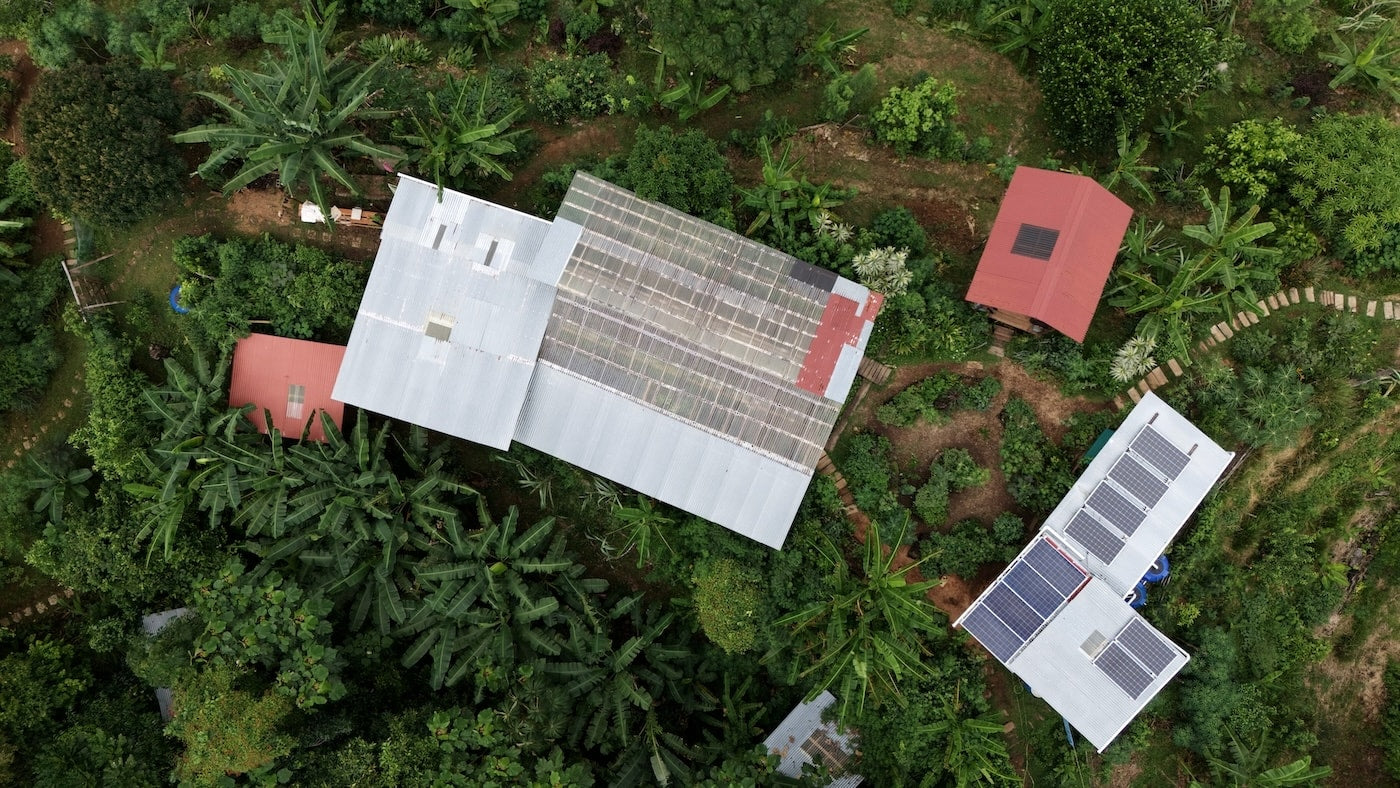
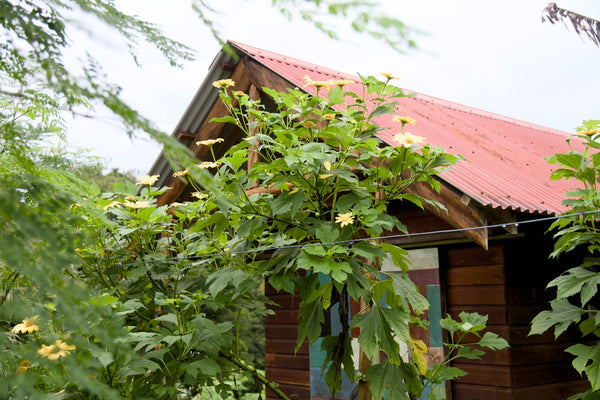
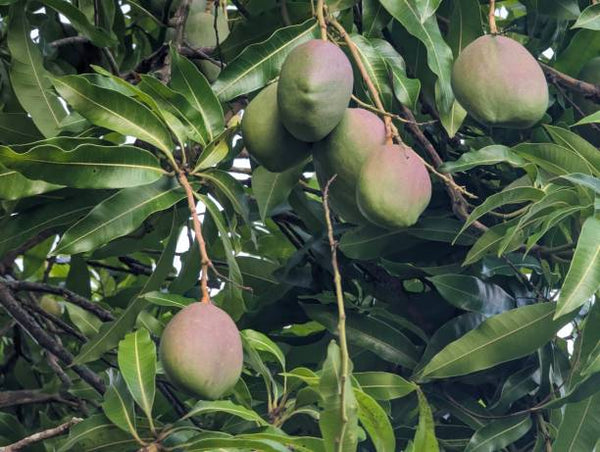
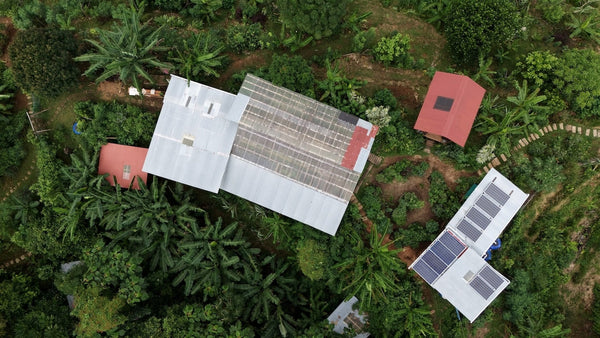
0 comments